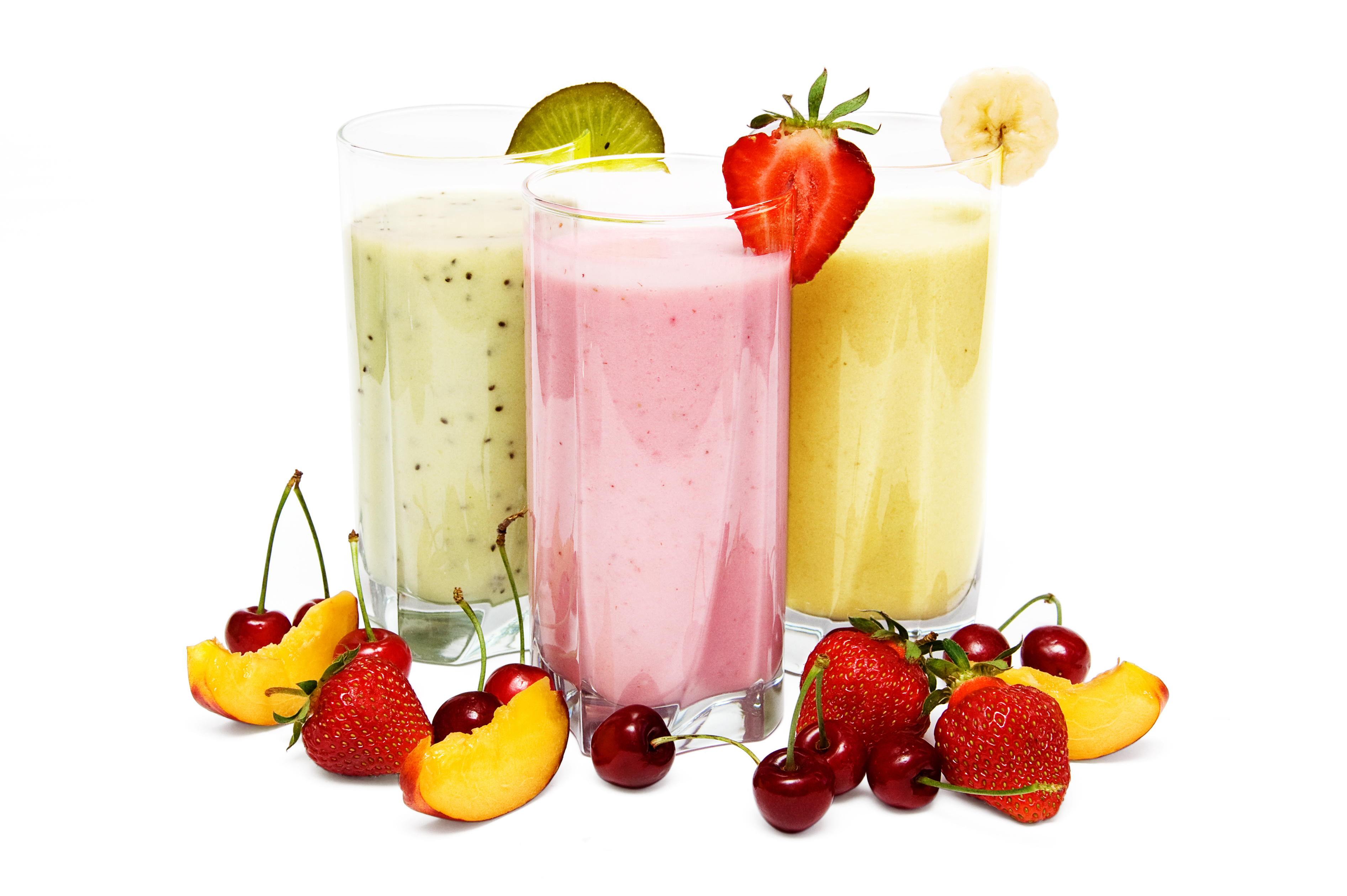Protein Supplements After Weight Loss Surgery: Yes or No?

Almost everyone needs protein supplements right after weight loss surgery. Protein shakes and powders give you the protein you need when you’re not allowed to eat solid foods. But which types should you choose? And should you keep using them when you’re eating solid foods and surgery is long behind you?
Protein for the Liquid Phase of the Post Weight Loss Surgery Diet Progression
- After a day or two of sticking to clear liquids, you progress to a full liquid diet. You can be on this diet for a few days, if you’re a lap-band patient, or a couple of weeks, if you have the gastric sleeve or gastric bypass. Protein sources include the following.
- Non-fat milk, with 90 calories and 8 grams of protein per 8 ounces.
- Non-fat milk powder, with 100 calories and 10 grams of protein per ounce.
- Low-sugar protein powder, with 110 calories and 25 grams of protein per ounce.
- Low-sugar protein shakes, with 100 or more calories and 15 or more grams of protein per 8 ounces.
Without supplementing your diet with protein shakes and powders, you’re not going to be able to hit your 60 to 80 grams of protein.
Protein Powders and Shakes in the Pureed Foods Phase
This phase is really a transition phase. You’re adding foods back into your diet, but aren’t yet ready to eat chewy, sticky, crunchy, or other solid foods. Protein foods include the following.
- Non-fat cottage cheese, with 12 grams of protein per half-cup.
- Non-fat ricotta cheese, with 5 grams of protein per half-cup.
- Egg whites, with 4 grams of protein per extra-large white.
- Non-fat Greek or regular yogurt, with 8 to 14 grams of protein per container.
During this phase, your surgeon will probably have you start to decrease your use of protein shakes and powders, but will probably recommend keeping them in your diet to help you get to 60 to 80 grams of protein per day. You might need one or two shakes a day, plus powder in foods such as oatmeal, yogurt, or pureed potatoes.
Be Wary of Protein Supplements in the Long-Term
Protein shakes and powders can be convenient, but they’re not your best bet for long-term weight loss. As you progress from pureed foods to semi-solid and then solid foods, your surgeon will probably recommend that you stop drinking shakes and focus instead on solid sources of protein.
- They’re more substantial and satisfying than liquid shakes.
- They take longer to eat than drinking shakes.
- They’re easier to fit into a real-life eating plan.
- You won’t be “drinking your calories.”
- They have more natural nutrients than processed shakes and powders.
Most weight loss surgery patients can get enough protein just by choosing one or two high-protein foods for each meal. You’ll get 60 to 80 grams with the following foods.
- Breakfast: 2 scrambled egg whites with ½ light English muffin and some fruit.
- Lunch: ½ cup fat-free cottage cheese and a green salad with 3 ounces of canned light tuna.
- Dinner: 3 ounces of chicken breast and steamed spinach.
- Snack 1: 1 low-fat cheese stick.
- Snack 2: 1 6-ounce container of plain low-fat yogurt and ½ cup carrot sticks.
When Protein Supplements Are Okay
Still, some weight loss surgery patients may still need protein shakes and powders in the long term. That’s often the case for vertical sleeve patients if your sleeve fills up too quickly to allow you to eat enough solid protein throughout the day. Talk to your surgeon to find out whether you should still use shakes and powders. Your surgeon might suggest that you include one or two protein shakes a day as snacks or mix protein powder into your yogurt, cereal or other foods.
Protein supplements can still come in handy even if you’re able to meet your protein requirements on your daily weight loss surgery diet. If your routine gets interrupted, you might come up short. Consider the protein you can miss if you need to change your regular plans for a meal or snack.
- 10 grams of protein if you run out the door without grabbing your yogurt in the morning.
- 22 grams of protein if you forget to pack your tuna for lunch.
- 26 grams of protein if you’re stuck in a meeting instead of cooking your chicken dinner at home.
When you’re stuck in the car or too busy to plan ahead, protein shakes can be lifesavers. On vacation, you can take protein powder with you so you’re always sure to have a source when you need it. You could also try Unjury Protein’d Cheese Sauce on steamed vegetables for an extra 21 grams of protein.
Read the Nutrition Facts Panel to Find Protein Content
The Food and Drug Administration lets food manufacturers call a food “a good source of” protein if it has at least 5 grams of protein. If a serving has at least 10 grams of protein, a food can be labeled “high,” “rich in,” or “an excellent source of” protein. That doesn’t do you much good if you’re trying to find a shake or powder with at least 15 to 20 grams of protein per serving.
Don’t rely on a claim on the front of the label when you’re looking for a protein supplement. You could end up with a “high-protein” shake with only 10 grams of protein! Instead, check the nutrition facts panel to see how many grams of protein the food or shake has per serving.
Check the Label for Calories and Sugar
Protein shakes and powders can be high in calories and sugar. A bottle of Special K Protein has only 10 grams of protein, but 190 calories and 18 grams of sugar. A Pure Protein Frosty Chocolate Shake has 15 grams of protein, but 190 calories and 25 grams of sugar. A can of Boost High Protein drink has 15 grams of protein, 240 calories and 27 grams of sugars.
No matter which stage of your weight loss surgery diet you’re on, you can’t afford to eat too many calories or too much sugar. The only way to protect yourself is to read the labels.
Protein supplements can be great choices for boosting your intake to 60 to 80 grams a day. Shakes and powders can get you through the liquid and pureed foods stages of the post-surgery diet progression, and they can have a place in your diet even when you reach your long-term weight loss surgery diet plan. Just make sure not to overuse them if your surgeon is concerned, and to choose low-sugar options.
ya know Alex, i agree with some of your points, but not all.
i am not an expert in anything but me... I am maintaining a 160# weight loss post sleeve.
Protein bars are EVIL! haha.. they became my new snickers bar and had to be banned. They are very high carb and I found myself wanting them even though they don't actually taste that great!
Low carb Protein drinks on the other hand are a real help to me, and i will be celebrating my 3 year surgivesary ( revision from band to sleeve) in December. They:
-replace a meal
-replace the nighttime snacking/hunger (a lifelong problem for me!)
-they go down easy
I have tried lots of them, and keep going back to Premier Protein - chocolate and strawberry flavors. it is thick enough to be filling and tastes good to me.
I average one a day.. skip a few days and then occasionally have "fast" days which rely heavily on my Protein Drinks.< /p>
This truly is a journey where we each need to find what works for us. and lets be honest, those of us lucky enough to be born female eat ALOT less then men to maintain a healthy weight.
I've discovered that I can no longer tolerate the flavor of any Protein supplement. Preop, there were quite a few that I could tolerate and even liked. But, now I can't stomach any of the shakes or Protein Bars. No matter how sweet or how much they taste like a candy bar, all I taste is the protein and it makes me gag. I don't know what happened. Needless to say, I am having some trouble getting in enough protein. Had anyone else experienced this?
After almost 8 years there seems to be a balance of Protein intake. I also like Premier Protein drinks. My band doesn't allow much in the morning and a drink helps. Often a Protein Bar in my purse gets me through a few more hours. In a perfect world I would have solid food in the am. But this band says no. And I listen for once in my life. So far so good!
At almost 10 months, I still have a Protein smoothie almost everyday. My reasoning is as follows....
1) since I don't measure or track anything, I seriously don't know how much Protein I'm getting. One of my smoothies is 30-40g protein so I don't worry that I am getting at least another 20-30g from regular food to meet goals.
2) by assuring the protein intake from the smoothies, I am free to eat a more balanced diet which includes fruits, veggies and whole grains. I still include protein in my meals, but I always leave room for the other stuff.
3) I drink them over 1-2 hours in between appointments at work which satisfies my urges to snack through the day.
4) besides the protein, I am getting 24-32oz of my daily Fluid requirement
5) I mix my insoluble Fiber supplement in my protein smoothie, and believe me, this is a necessity for business on the "other end"
And as for protein bars, I always have one handy because I rarely have time for Breakfast and I don't get a lunch break, so they are easy Meal Replacements. I also include whole grain and Fiber bars in my list of acceptable Snacks or Meal Replacements.< /p>
My $.02
Protein replacements are necessary in the beginning. They can be a decent "on the run" choice. But long term, we need to eat healthy food...and there are healthier options than eating a ****-ton of artificially sweetened whey. Once in a while, though, they're a great option and worth keeping around.
There are also dangers in eating too much protein long term that you should discuss with your doctor. Average sized folks who are busting 80g per day every day long term....should discuss it with their docs.
60-80g per day is an awesome maintenance level. Would be even better... if half or more of those grams were coming from complex carbs and plant based protein, IMO.
My program recommends the lighter side of the protein requirement after you hit maintenance. I eat about 60-65g per day these days.








bikrchk 1,313
Posted
I'm 1 year out and would not be able to consume "½ cup fat-free cottage cheese and a green salad with 3 ounces of canned light tuna" in one sitting. I could choose the cottage cheese OR the tuna, but would over-fill my sleeve. I use a scoop of chocolate whey in my coffee in the morning as "creamer" and usually take a solid bar of some kind between lunch and dinner. They allow me the flexibility to eat a better variety of foods rather than strictly a chunk of grilled meat or some tuna or 1 egg. I still choose Protein first at meals, but supplements allow me to mix in other foods as well. Plus, I've found ways to take them where I enjoy the supplement its self and would miss it. The coffee makes a nice mocha latte and a PowerCrunch bar fills my need for a "cookie" with something that has some food value for me. If I get busy and miss a meal, at least I know I've met my minimums for the day.
Share this comment
Link to comment
Share on other sites